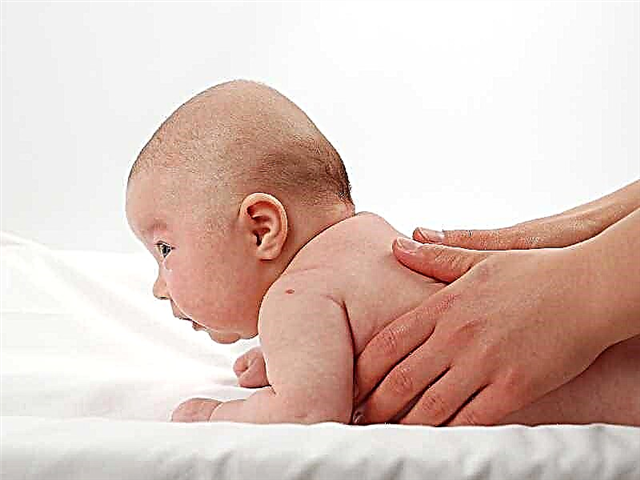When a baby is just born, his body begins to adapt to a new way of feeding - without a mother's womb. Now the child is independent and does not depend on the mother. During this period, a lot of unusual things happen to him. For example, a newborn may have an unexpected darkening of urine. Do not panic - perhaps this is a variant of the norm.

The contents of a baby's diaper can tell a lot
Features of the urinary system in newborns
The urinary system of a newly born baby has a number of features that are not typical for older children. These features include:
- Influence on urine color of foods eaten by a nursing mother;
- Overload sensitivity;
- Increased susceptibility to bacteria and viruses;
- Imperfection of the digestive and excretory systems associated with the characteristics of the infant's adaptation to the outside world.
Parents should observe the color of the baby's urine in order to notice any changes in time. To do this, you must periodically give up disposable diapers and wrap the baby in a light diaper. Also, if there is a tangible cause for concern, you can buy a children's urinal at the pharmacy and deliver it to the child in the morning, as soon as he wakes up, or at night. The urine obtained in this way is poured into a transparent container, now you can evaluate it by its color.
Light yellow or clear urine is traditionally considered normal. It is this selection that is typical for most healthy children. However, the presence of an inflammatory process in the kidneys and bladder can cause significant discoloration of urine.
Attention! The urinary system of the baby during the neonatal period is especially vulnerable and susceptible to infections. Parents must follow good hygiene and proper child care to prevent inflammation and other disorders.
Causes of darkening of urine in a child
Dark urine in a child is far from uncommon during the newborn period, from the first day of life to one month. The main features of this condition in babies:
- It is not always a pathology;
- Darkening can be one-time or permanent;
- Color change can be observed at different times of the day;
- Some conditions with unusual coloration require urgent medical attention.
Physiological
The physiological cause of the pathology is, as a rule, the diet of a nursing mother. Certain foods (such as beets or black currants) are known to darken urine and feces for a short time. With the withdrawal of the product, the color of the urine changes to yellow.
Pathological
The most popular physiological cause of the problem is neonatal jaundice, which is accompanied by a significant increase in bilirubin in the blood. In most cases, this disease goes away on its own, without affecting the health and development of the baby. However, under some circumstances, it can drag on for a long time, for up to three months.
It is known that severe jaundice can lead to serious neurological disorders and even dementia of a child, therefore, at the slightest suspicion of a disease, you should consult a doctor for the appointment of the necessary tests. In severe cases, babies are hospitalized and kept in the hospital until the level of bilirubin in the blood is safe.

Neonatal jaundice may be a pathological cause of darkening.
What the color of urine signals
There are many causes of dark urine in a child. However, urine can have other shades:
- Normal;
- Bright yellow;
- Red;
- Brown.
Each of them has its own reason.
Normal color
In a healthy child of the first year of life, urine is always light yellow, straw. Normally, it should not contain any impurities. A small amount of sediment with small brownish grains of salt is allowed, this is not a pathology.
Attention! The normal color of urine does not guarantee the complete absence of problems in the baby. There are diseases of the urinary tract that are not accompanied by a change in the color of urine. To diagnose them, it is necessary to take tests or conduct an ultrasound scan.
Dark yellow
This color may indicate inflammation of the urinary tract. In this case, you should consult a doctor for the appointment of the necessary tests. Timely treatment will help prevent the development of the disease. The pediatrician will tell you what to do and how to solve the problem.
Brown
Brown urine in a child may indicate that there is blood in the secreted fluid. Also, this color of concentrated urine is characteristic of a dehydrated body (if the baby receives little fluid and nutrients).
Red
Sometimes the color of urine in a child is red. In this case, we can talk about the rapid development of the inflammatory process. Seeing a doctor will help to establish kidney function in an infant. Perhaps a doctor will prescribe a course of antibiotics.

Baby urine is not only yellow
Dark urine in the morning
In some cases, the dark color of urine in a child is observed exclusively in the morning time of the day, and by the evening it gradually brightens. In this case, the reason is most likely in the foods that the nursing mother ate the night before. This phenomenon is one-off and does not pose a threat to the health and life of the baby. The main thing is to find out in time why the darkening happened.
Dangerous symptoms of dark urine
The dark color of urine during the collection of the analysis may indicate a developing inflammatory process, if the following symptoms are added to the darkening:
- Pronounced anxiety in a small child;
- Increased body temperature;
- Scanty urination;
- Refusal of the baby from food and drink.
Most likely, the doctor will offer to hospitalize the child. Treatment of the disease, according to Komarovsky, usually takes up to ten days and consists of antibiotic therapy. The medicine for the infection is prescribed intramuscularly for better absorption. In the future, the task of parents is to prevent relapses, since kidney diseases often return with each hypothermia of the body and subsequently take on a chronic form.
Having noticed darkening, parents should consult a doctor to eliminate the risk of developing pathology. However, in most cases, the color change is of a one-time nature and is absolutely harmless for the baby - this is just an individual feature of the child's body. You should also monitor the amount of fluid secreted - scanty urination may indicate that the child is systematically malnourished, sucking out little milk or formula.



